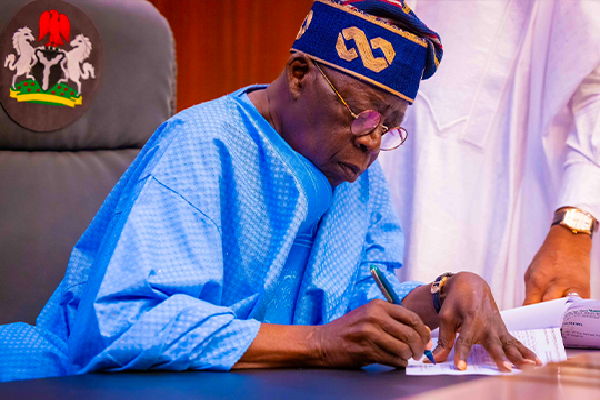President Bola Tinubu has announced a wage increase of N25,000 per month for all junior federal workers to run for the next six months to cushion the effect of subsidy removal.
Tinubu, in his nationwide broadcast on Sunday morning, said based on talks with labour, business and other stakeholders, his government is introducing a provisional wage increment to enhance the federal minimum wage without causing undue inflation.
“For the next six months, the average low-grade worker shall receive an additional Twenty-Five Thousand naira per month.
Read Also Tinubu: Reform Painful, But It Is What Greatness And Future Require (Full Independence Broadcast Speech)
“To ensure better grassroots development, we set up an Infrastructure Support Fund for states to invest in critical areas. States have already received funds to provide relief packages against the impact of rising food and other prices,” he said.
Tinubu stated that to boost employment and urban incomes, “we are providing investment funding for enterprises with great potential. Similarly, we are increasing investment in micro, small and medium-sized enterprises.
“Commencing this month, the social safety net is being extended through the expansion of cash transfer programs to an additional 15 million vulnerable households.”
Read Also Independence Day: Tinubu To Address Nigerians Tomorrow
The president said his government is making the economy more robust by lowering transport costs, saying that in this regard, “we have opened a new chapter in public transportation through the deployment of cheaper, safer Compressed Natural Gas (CNG) buses across the nation. These buses will operate at a fraction of current fuel prices, positively affecting transport fares.
“New CNG conversions kits will start coming in very soon as all hands are on deck to fast track the usually lengthy procurement process. We are also setting up training facilities and workshops across the nation to train and provide new opportunities for transport operators and entrepreneurs. This is a groundbreaking moment where, as a nation, we embrace more efficient means to power our economy. In making this change, we also make history.”

